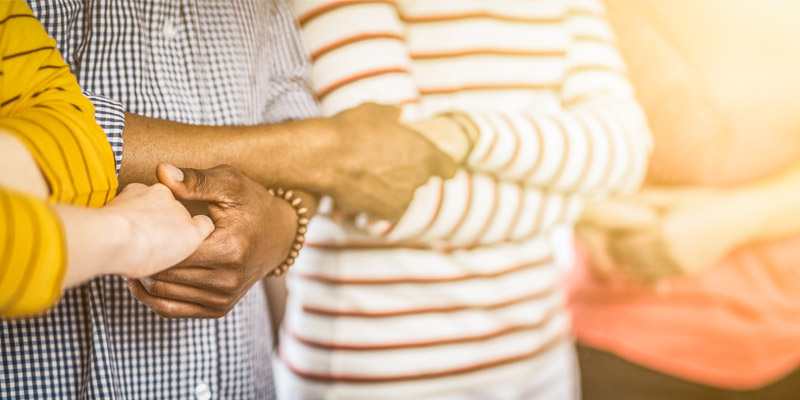
Monday, July 27, 2020
Local radio and television broadcasters are playing an important role in helping to support discussions on race in their communities. From hosting virtual town halls to airing special reports featuring in-depth conversations, broadcasters nationwide are keeping their communities informed about issues of race relations.
TEGNA’s WWL New Orleans aired a special that focused in depth on the conversations Black parents have with their children about what it means to be Black in America, followed by a roundtable discussion with local leaders.
TEGNA’s WZDX-TV Huntsville hosted a virtual town hall on race relations on June 24. The event featured local leaders, activists and police officers. WZDX encouraged viewers to submit questions.
Sinclair’s WJLA Washington, D.C., hosted a town hall focused on the historic announcement to change the franchise team name of the Washington Redskins on July 7. “The Racial Divide: Time for Change" was moderated by ABC7 Sports anchor Scott Abraham, ABC7 News anchor Michelle Marsh and ABC7 News and Sports contributor Lou Holder and featured former NFL players, sports business experts and Native American groups.
Hearst’s WCVB Boston recently aired a special during primetime titled "Project CommUNITY: Race Matters in Massachusetts." The special explored the history of racism in Massachusetts and examined what needs to be done so that everyone can move forward together. Topics included policing and reform, bias and disparities in healthcare and wealth. WCVB’s Maria Stephanos and Karen Holmes Ward led the program, convening a panel of experts to discuss and analyze this current moment in our country.
CUMULUS MEDIA’s Westwood One News presented a special program titled “Black Lives Matter: From Protests to Police Reform.” Correspondent Elliott Francis explored how the killing of George Floyd by a police officer sparked a national conversation on racial and social injustice in the United States. Francis also looked at the impact the movement has across all aspects of society.
Nexstar’s KDVR-TV Denver hosted an exclusive live virtual town hall meeting titled “Racism and Reform: Seeking Solutions.” The discussion addressed recent protests, the police response and potential solutions. Participants included Denver’s mayor, police chief, members of the Colorado delegation and other state stakeholders.
Connoisseur Media and Meredith Corp. partnered on a live broadcast about race and justice. “Face the State: A Conversation About Race and Justice in Connecticut” aired live on Meredith’s WFSB-TV Hartford-New Haven and Connoisseur’s six radio stations in New Haven and Bridgeport. Participants included Gov. Ned Lamont, Connecticut NAACP President Scot Esdaile, Chief of Police for the city of Milford and President of the Connecticut Police Chiefs Association Keith Mello and Assistant United States Attorney Ndidi Moses.
ABC’s KFSN-TV Fresno., aired a special titled “Anger, Action, Answers: A Central California Conversation." Six panelists joined moderator Graciela Moreno for a one-hour conversation about what it means to be a Black person in this country and how the country might be able to move forward.
Fisk University’s WFSK-FM Nashville is primarily a jazz station, but has also historically been a hub for news and organization in Nashville’s Black community, a role that has become even more important during the recent protests following the death of George Floyd at the hands of police. General Manager Sharon Kay spoke about the station’s role here.
Nexstar Media Group’s KFOR-TV Oklahoma City, Okla., hosted a one-hour town hall to facilitate an honest conversation about race as a part of the station’s “United Voice” effort. The virtual conversation included Pastor Clarence Hill, Oklahoma City Mayor David Holt, social advocate CeCe Jones-Davis and U.S. Senator James Lankford.
Urban One hosted a virtual town hall, “We Are One: More Than A Hashtag,” to address the political and racial climate surrounding George Floyd’s death. The town hall featured NAACP President and CEO Derrick Johnson and National Urban League President Marc Morial, among others.
Your local broadcasters are on the front lines providing critical support to their communities, even as they struggle from a steep decline in advertising revenue. Read more stories about broadcasters’ public service at BroadcastPublicService.org.
More than 2.46 million American jobs depend on broadcasting. The local broadcast television and radio industry and the businesses that depend on it generate $1.19 trillion annually for the nation's economy.